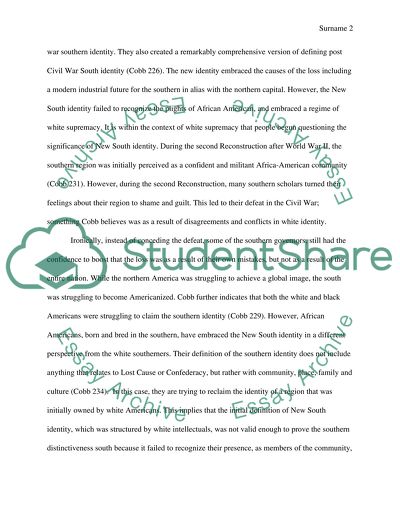Cite this document
(“Southern Distinctiveness.James C. Cobbs Away Down South Essay”, n.d.)
Retrieved from https://studentshare.org/english/1461490-southern-distinctivenessjames-c-cobbs-away-down-south
Retrieved from https://studentshare.org/english/1461490-southern-distinctivenessjames-c-cobbs-away-down-south
(Southern Distinctiveness.James C. Cobbs Away Down South Essay)
https://studentshare.org/english/1461490-southern-distinctivenessjames-c-cobbs-away-down-south.
https://studentshare.org/english/1461490-southern-distinctivenessjames-c-cobbs-away-down-south.
“Southern Distinctiveness.James C. Cobbs Away Down South Essay”, n.d. https://studentshare.org/english/1461490-southern-distinctivenessjames-c-cobbs-away-down-south.


